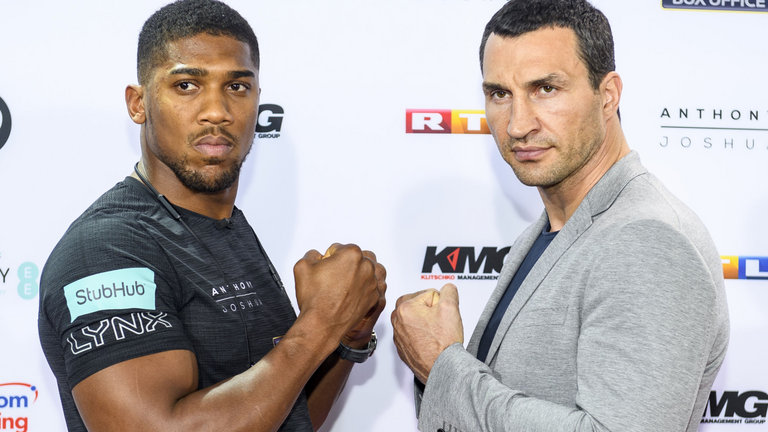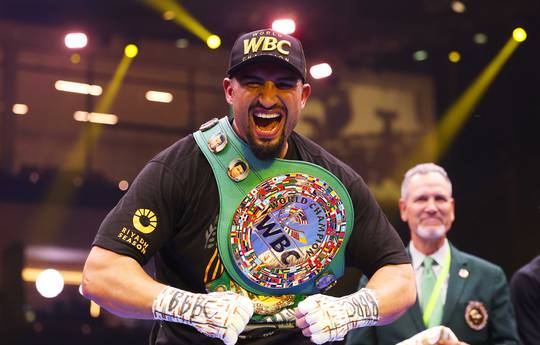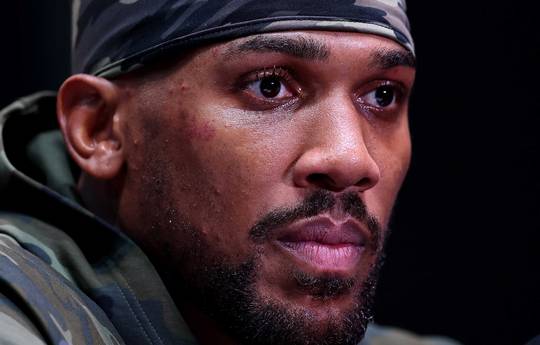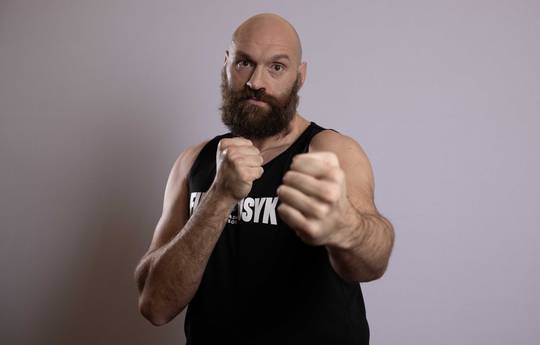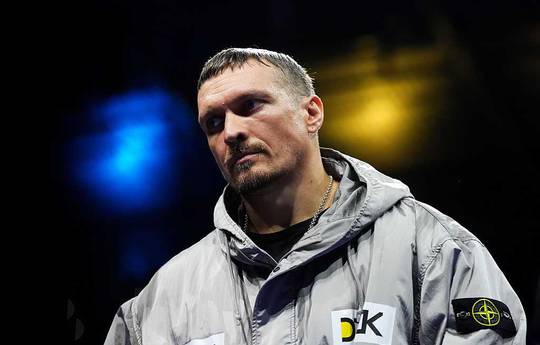Anthony Joshua's fight with Wladimir Klitschko was set in motion by a single text and we hear from the two men who planned the huge Wembley showdown.
A worldwide audience will be watching Joshua and Klitschko when the first bell rings for their world title fight on April 29, live on Sky Sports Box Office.
But how did the heavyweights react when asked about this historic clash at the national stadium? And what issues were overcome in negotiations?
Joshua's promoter Eddie Hearn and Klitschko's long-term manager Bernd Boente have revealed how AJ-Klitschko was made...
Who made the first move?
Boente: I think we texted each other about something else, then were discussing this and that. I don't know who had the first idea, but it was more or less fluently coming out of our conversation, if that could be a possibility. Then we asked our respective fighters, meaning Anthony and Wladimir, and both directly agreed.
Hearn: Once the Tyson Fury fight fell through, I texted Bernd Boente and said there is an opportunity here to fight. 'You're fit, you're ready to fight, do you want to fight Anthony Joshua instead?' He came straight back and we started looking at the options.
How did Joshua and Klitschko respond?
Hearn: AJ's response is always 'yeah, I'll fight anyone, speak to Rob.' Then [trainer] Rob McCracken will look at it and go through it with AJ, Tony Sims, and me. It was quite a quick response. I think Rob ideally wanted that second defence, which we ended up getting against [Eric] Molina.
This was a team decision that was discussed and accepted very quickly. We feel like he's had his defences and now it's time to gamble.
Boente: He said that's a fantastic opportunity. Wladimir accepted it right away. He was very frustrated at Fury cancelling the fight a second time.
A tough deal to negotiate?
Hearn: I think Bernd Boente and Wladimir Klitschko had a rough 12-18 months. They were a little bit scorned when they first entered the negotiations with us and it was difficult. After everything that happened with them, I don't think they were looking to automatically trusting promotional partners.
We had to earn that trust and build that trust. When we overcome the contract, which was excessive and difficult - as it would be with two fighters of this size - the relationship has been excellent. We all have worked together diligently.
Boente: It's always tough to negotiate because both sides want to have an advantage here and there, the moment it comes to the finances. But Eddie is a professional and I am a professional. If you are dealing with professionals, it makes it easy.
We both very quickly found an agreement. We had to go back to the boxing teams and talk with them, but everything was fine.
Was Wembley always the ideal venue?
Boente: It was clear from the beginning that this fight has to be in England and not in Germany. Wembley is the place to go. Eddie checked Wembley and Cardiff, which would have been from a production point of view, maybe a better choice, because it has a roof.
For Wladimir, no question was asked about Germany or any other place. It was absolutely fine. Wladimir has no problems about fighting in other countries.
Hearn: It was always there. We knew that Wembley had this potential date in April. I guess the only gamble is the weather, with Wembley. We looked at the Millennium Stadium as well. I just think Wembley is the national stadium. As great as the Millennium stadium is, Wembley is the pinnacle.
The vacant WBA belt proved crucial in talks?
Boente: That was very important for Wladimir, because that had nothing to do with the financial aspect. That was really because Wladimir was a long-time WBA champion. For him that belt was very important - it goes back to the time of Muhammad Ali, who was always Wladimir's idol, therefore this was an important aspect.
It was always clear that the IBO would be on board, because that title was vacant, and now we have a fight for three titles and that's perfect.
Hearn: Very important, because I think Klitschko was in line to fight for that belt, whatever happened. For Klitschko just to come into this fight as a voluntary challenger for Anthony's IBF belt would have put him in a weaker position from a negotiating perspective.
There are two belts on the line, or three if you count the IBO as well, so I think that was very important. I wanted this fight to be a unification fight, multiple fights on the line, and we got all of those things. Once the approval came from the WBA, that was the final thing to get it over the line.
What next if your fighter wins at Wembley?
Boente: There is only one opponent in Wladimir Klitschko's mind and that is Anthony Joshua. We don't look any further than that. Wladimir never did that. For him, only the Joshua fight is important.
Hearn: Because of the size of this fight, I have not really thought about it. Everything is just on the line on April 29. Deontay Wilder will be ringside, that's a natural fight. Joseph Parker is another fight as well, but it's all about winning.
